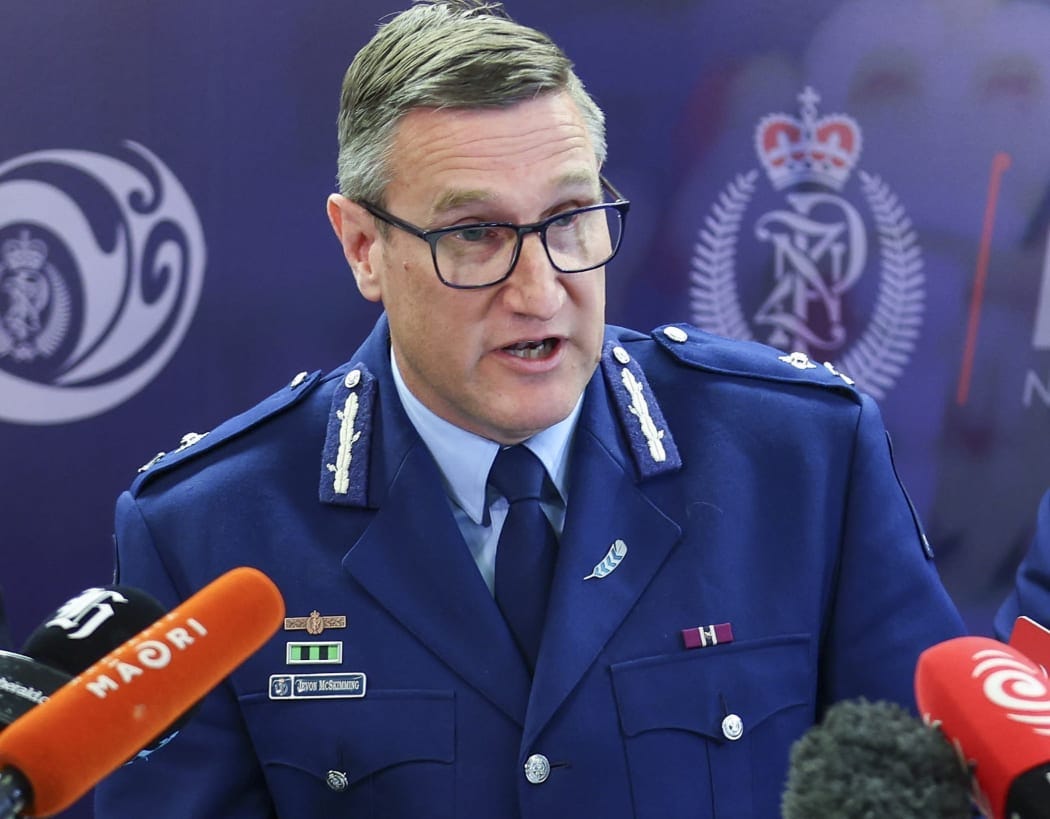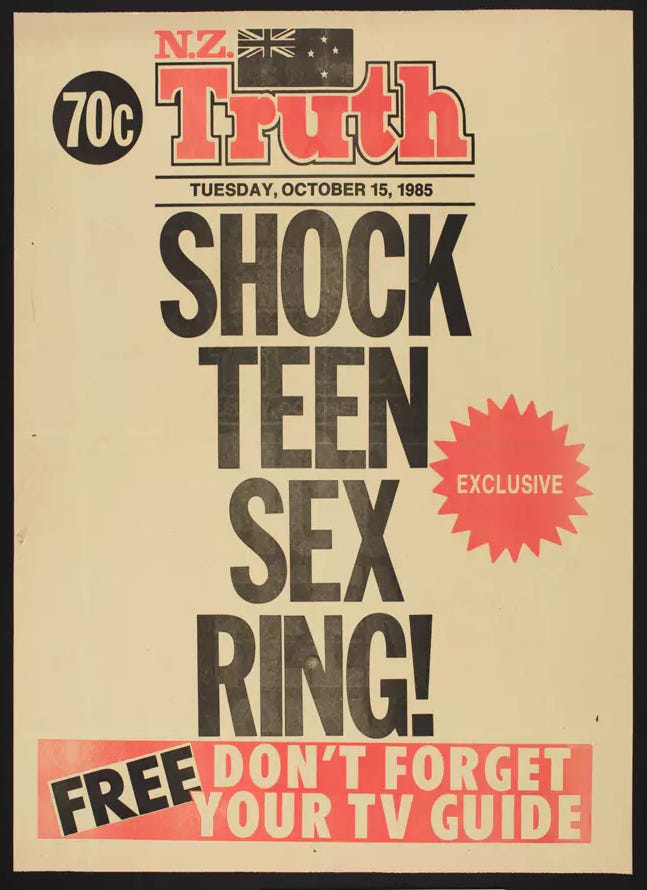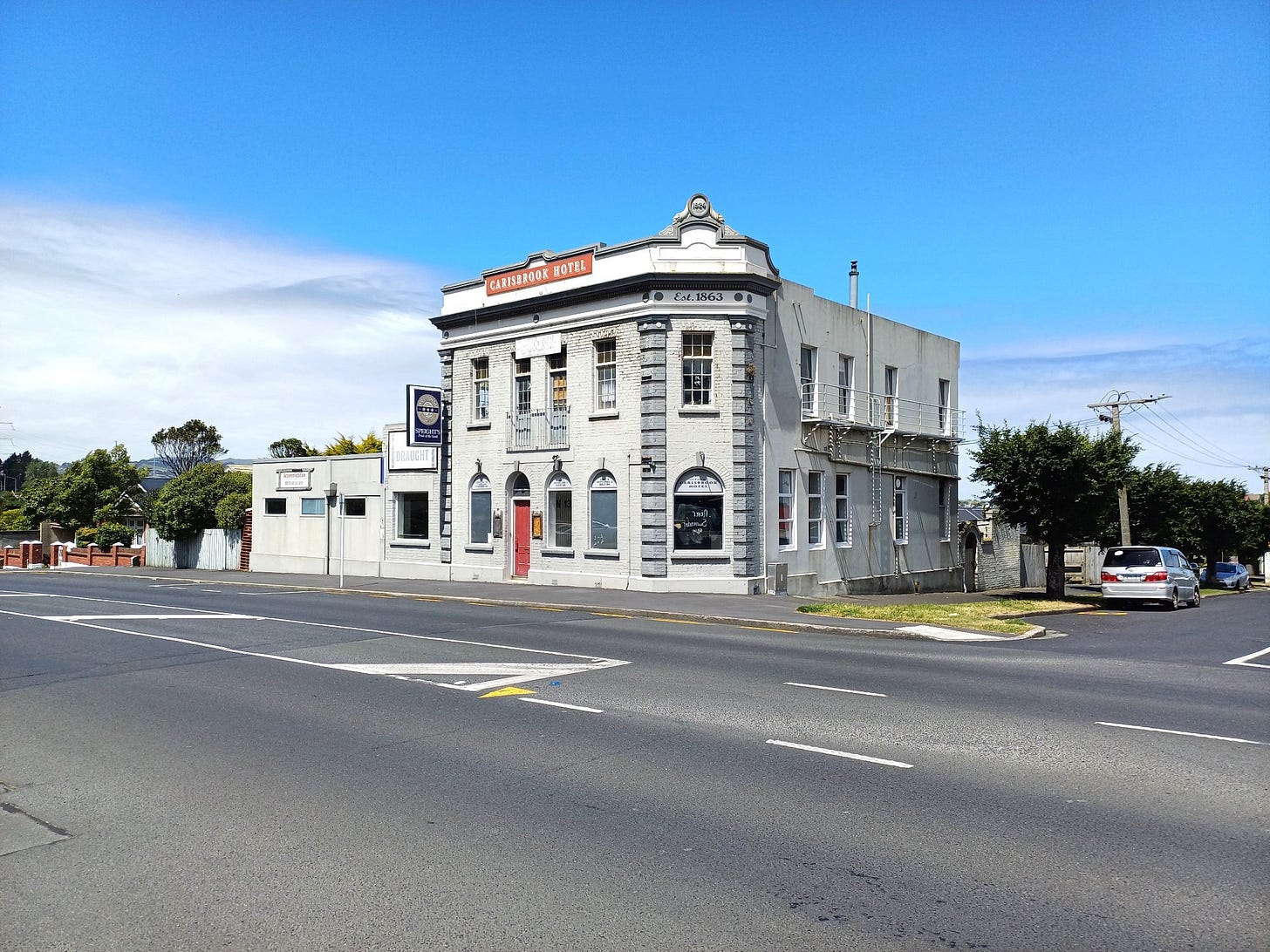McSkimming, and more skeletons in the Police's closet
Another episode in New Zealand police's culture of silence
The IPCA report into former Deputy Police Commissioner McSkimming has already become a scandal like no other in recent memory. It doesn’t come out every day that the 2nd-in-command national cop had an (allegedly) deeply abusive affair with a woman half his age, collaborated with much of the police executive to ignore, silence, and then criminally charge her, with it only coming apart once he got caught with child porn on his work phone. It’s not often that multiple ministers and the top cop have to front a press conference admitting to a widespread culture of corruption and cover-ups across the New Zealand police as an institution.
Since everyone and their government-issued merino sheep has published an explainer on the McSkimming scandal, and many others have been reading through the full IPCA report, I think it’s important to place this latest chapter in New Zealand elite malfeasance in context. It’s another example of what has a few euphemisms; the old boys network, the “little village” of New Zealand, the smoke-filled room. Powerful people closing ranks to protect each other.
Some have said this represents a new low in the reputation of police and the justice system, which if you’ve been paying attention it really shouldn’t. This is the same culture that was uncovered in the 2007 Bazley report, with the Commission of Inquiry finding hundreds of cases of sexual assaults being covered up and ignored. The year before, police were using their informant Robert Gilchrist to infiltrate rallies during the trial of officers who had covered up the sexual assaults against Louise Nicholas.
It’s not even the first time a police commissioner has been accused of being involved with illegal porn. When Police Commissioner Howard Broad apologised to the victims of the crimes outlined in the Bazley report in 2007, he blamed the damning findings on “a very few officers who have behaved disgracefully. Their actions were wrong and contrary to their oath of office.” Another few of those bad apples you keep hearing about.
Just a few weeks later, ex-TVNZ journalist turned conservative muckraker Ian Wishart released the findings of a 2 year investigation into long-running rumours and allegations about rampant Dunedin police corruption in the 1980s to 1990s, when Broad was a member of the the Dunedin CIB. The report alleged that a bestiality film had been screened at a party at Broad’s home in 1981, which Broad admitted but said he had no part in screening the film. He accused former police officer and private investigator Wayne Idour, the source of the claim, of providing the film.
More serious were allegations that much of the police had been involved in widespread corruption, as one unnamed former police officer reportedly told Investigate: “a large chunk of Dunedin police were effectively the biggest organized crime syndicate in the city – even more powerful than the gangs.” The biggest was a revival of a long-standing allegation: the cover-up of a pedophilia ring involving officers, MPs, lawyers, and businessmen, ran by the father of a senior police officer.
Tom Lewis, a former police officer who worked on the investigation, published a book covering the scandal among other stories of police corruption in 1996 (which I sadly don’t have, unless anyone has a spare $250 for a second-hand copy). However, he’s spoken about the scandal elsewhere. According to Lewis, underage Dunedin schoolgirls were being solicited by a scout to perform in $1000 BDSM shows for private audiences of well-heeled patrons in hotels around the South Island. In 1984, Lewis began running a sting operation inside the Dunedin CIB. This is what an undercover police officer was reportedly told by the ring’s scout, “Audrey”:
“[The informant] would be leading a naked man wearing a dog collar around the stage while whipping and abusing him. She would perform sexual acts on the man and invite women from the audience to participate, and she was then required to have sex with the bondage slave on stage. Audrey also told the constable she could double her fee by having sex with as many of the audience as she could manage. The more she serviced, the more she would be paid. She was, like Cathy, told that if she had sexual intercourse with the dog she would receive a large bonus.”
Soon the undercover officer was put in contact with the ring’s proprietor “John”, who police soon figured out was John Lewis, owner of the Parkside / Carisbrook Hotel.
“John Lewis told Devlin that his sex shows were based on the Marquis de Sade’s book, and that people attending the show “were right into bondage and perversion”. He warned her however that confidentiality was extremely important because “prominent people such as members of Parliament” would be present.”
His son was Murray Lewis, a Dunedin police officer who would go on to become the Tauranga Area Commander and be appointed to the New Zealand Order of Merit for multiple policing deployments in the Pacific. The undercover constable met John at the Parkside while wearing a wire, who explained the show and then asked to see her naked. Instead, Lewis and his team were waiting outside.
“When police burst in, they found John clutching a bottle of baby oil and whip, while on the bed nearby lay a copy of the Marquis de Sade’s book as well as a dog collar and leash. A videotape was found of one of the previous Dunedin sex shows, and included the type of sexual acts John and Audrey had described to Cathy and Constable Devlin. One local man on the videotape was instantly recognisable to police.”
The second that Lewis was brought back into the station, walls began to be put up against any sort of investigation. Evidence went missing. The team conducting the search warrant on the apartment of “Audrey”, real name Lynley Deaker, “forgot” to file a search warrant, meaning all evidence was inadmissible. The Dunedin District Commander personally requested that John Lewis be immediately bailed and released. The CIB chief ordered that the investigation be closed, as it was a “victimless crime”.
A whitewashed report was released in 1985, trying to kibosh any claims about a ring, or a cover-up. Then-local Labour MP Michael Cullen, who later served as Attorney General under Clark, and Labour party member and school teacher David Benson-Pope, who would later become a Labour MP, distributed the report around the community to quell fears. That didn’t stop other allegations from circling around in the intervening years, like officers using stand over tactics on brothels to get free sex out of prostitutes.
Dunedin has long been a particularly corrupt outpost of the New Zealand police, with a long history of allegations, more than a few botched investigations under their belt, and Port Otago serving as a major port of entry for drug traffickers. But as shown, many of the people involved in this were promoted upwards. Broad became the national Police Commissioner. Murray Lewis was given an NZOM for his services to the Crown. After being stonewalled on his investigations into the ring, Tom Lewis left the police and moved to Australia in 1986.
Time and time again, the New Zealand establishment lets its mask slip, and reveals the rot underneath the surface, something I’ve explored here previously. McSkimming is yet another example. As a small settler-colonial country with many imperial hangovers, New Zealand has inherited the British style of cloak and dagger dark politics, where rumours might swirl around, but after a certain point up the ladder things can be swept under the rug.
This culture is inculcated into people who start climbing that ladder. If you want to join the club, you have to learn when to bend the knee, and when to look the other way. This is another demonstration of how thoroughly that culture has been embedded inside the police, from top to bottom. The IPCA report uncovered 13 police staff who had knowledge of McSkimming’s relationship. Only four of those were not involved in covering up his crimes.
I guess this one hasn’t been much about McSkimming. To be honest, I don’t think this will be the end of the story. There are still many unanswered questions, like who knew what and when, and how McSkimming came across enough money for a large home, multiple investment properties, a luxury car collection (and “exotic car tours” company, with no actual footprint), and a number of expensive hobbies.1 If a deeper look on McSkimming is something people are interested in, let me know.
While I also welcome any sort of increased oversight against a police force with no leash apart from a very toothless IPCA, the New Zealand police has demonstrated again and again that they need serious reform (or abolition). But if we do see actual enforcement, don’t expect it to be pretty. New Zealand ranked top of the world on the oil-money funded Transparency International “anti-corruption index” only because of this ingrained culture of turning the other way, now beginning to slip down the rankings as the coalition government enters the “scrap everything for parts” stage of neoliberalism. When more skeletons start getting pulled out of the closet, we won’t be “Clean Green New Zealand” much longer.





https://www.bookfinder.com/search/?ac=sl&st=sl&ref=bf_s2_a1_t1_1&qi=lGI,fBArsalsKgv8Ysw.STM.hSw_1763017709_1:489:1430&bq=author%3Dtom%2520lewis%26title%3Dnz%2520police%2520the%2520shocking%2520truth%2520coverups%2520%2526%2520copouts